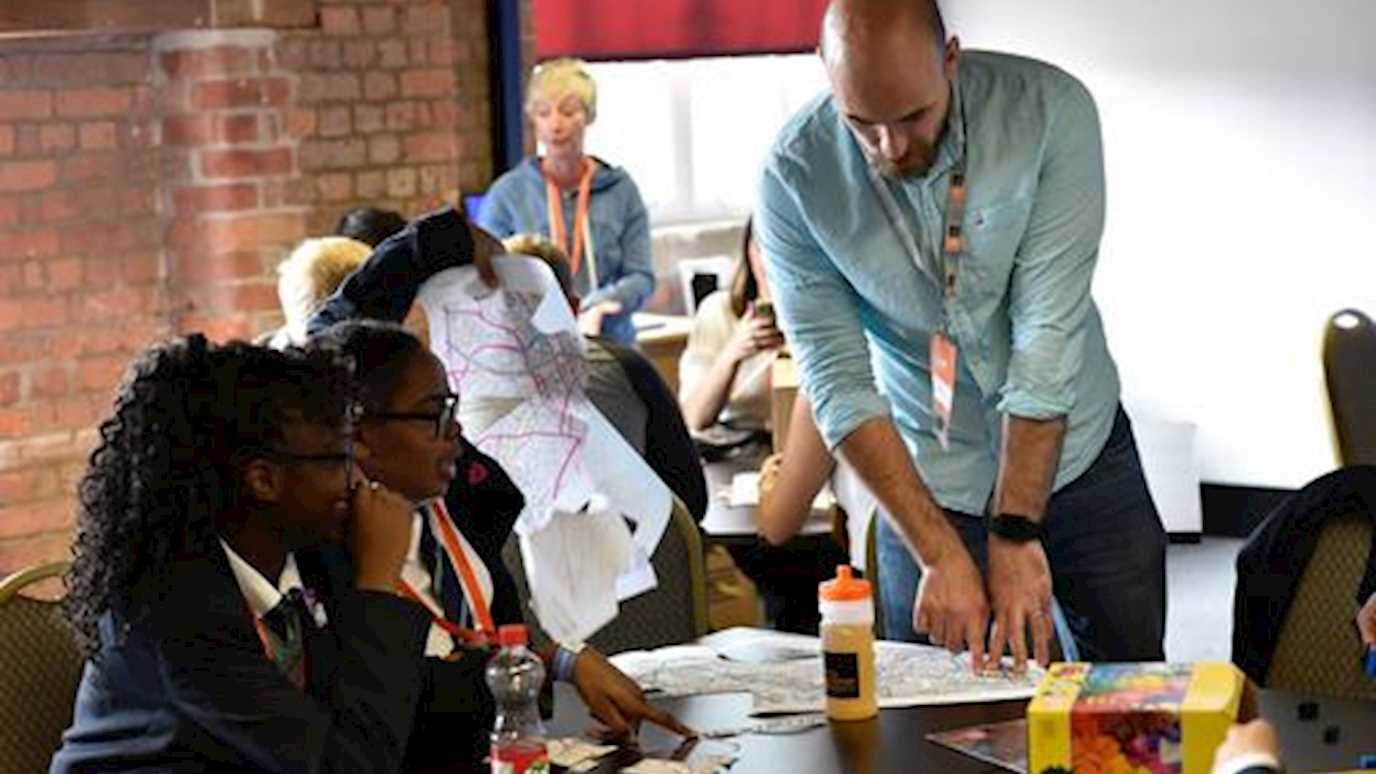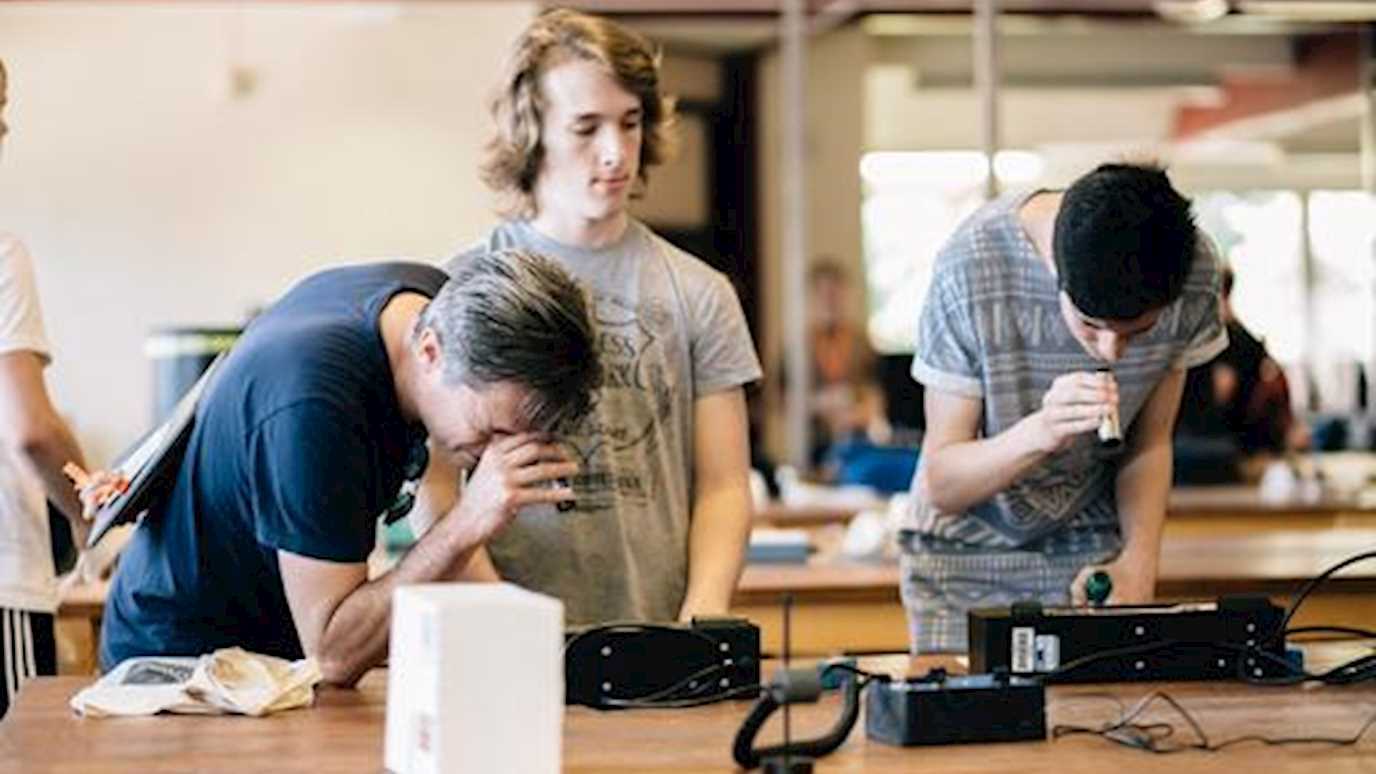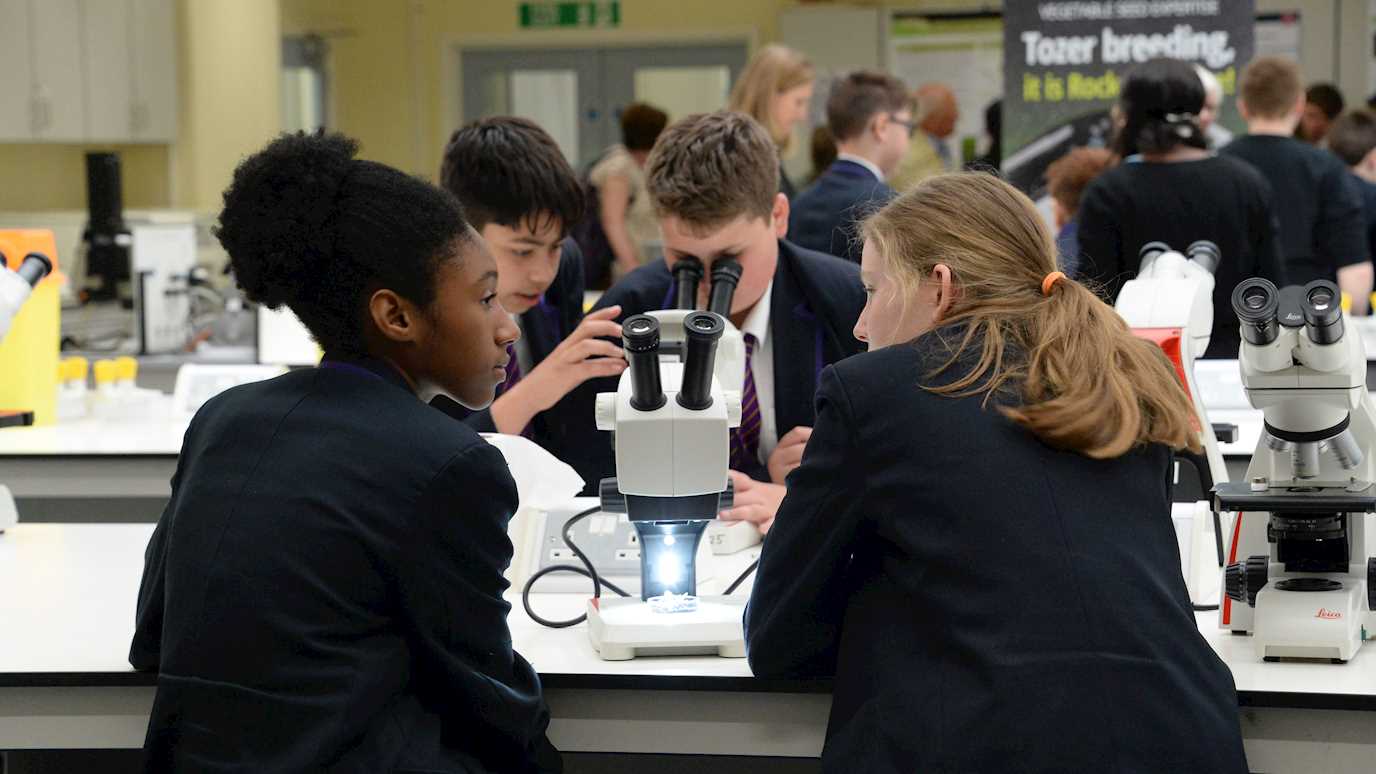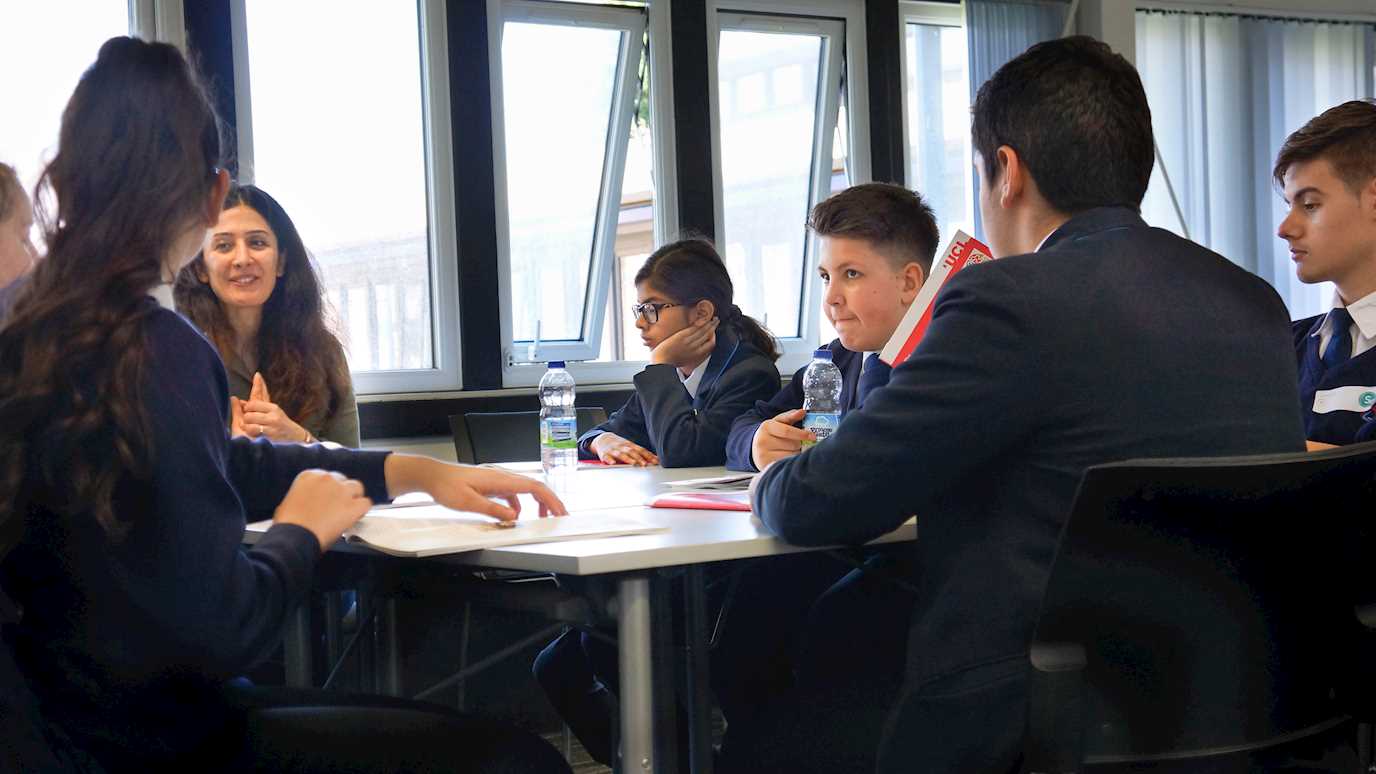We host a series of year-round events, talks and activities for students considering studying Biological Sciences at university.
Schools’ Biodiversity Project
Undergraduates from our Biological Sciences department have been helping local schools to make the most of their green spaces by monitoring and fostering local wildlife.
The Schools’ Biodiversity Project helps schools to learn about the surrounding wildlife, from beetles to birds, as well as create places for them to live. This includes introducing light boxes to monitor moths, pond dipping and setting camera traps. When needed, students are paired with trained undergraduates to help run curriculum-based projects.
Find out more about our Schools’ Biodiversity Project
Rare Disease Day
We’re a leading institution in the development of novel therapies for rare diseases. Our Rare Disease Day - running alongside the international event - is an opportunity for students to attend lectures and get hands-on experience in our lab practicals.
We will run our annual Rare Disease Day event on 28th February 2024. The event is tailored to secondary school years 10, 11 and 12 and we will keep to the format from previous years, with live talks, live exhibition, speed-dating and hands-on activities. The event touches on medicine, genetics, genomics, biomedical research, societal aspects of rare diseases, as well as university life and other general topics. Our themes are of particular interest to students considering health-related and science careers.
You can watch previous talks and find out more about the international day by visiting Rare Disease Day at Royal Holloway.
Spotlight on Science series
A Level resources
Our academics have created short films based on their research, to give A level teachers valuable classroom resources, including learning outcomes and discussion points to raise and engage with their students.
- You think you're stressed? Try being a plant!
- The secret life of your colourful aquarium fishes
- Manipulation of RNA splicing to correct disease mutations
- Birds blind to the danger of windfarms: How green is green energy?
Visits and talks
We organise frequent visits to local schools and museums to talk about our work. We also welcome visiting groups to our department.
Suggested talks:
|
Understanding the brain and its role in memory formation |
Dr Philip Chen |
|
A Zoologist in Tasmania |
Professor Dave Morritt |
|
TB or not TB: Diagnosing a deadly disease |
Dr Shobana Dissanayeke |
|
Chloroplasts, the (green) stuff of life |
Dr Enrique Lopez |
|
The origin of our crops: 10,000 years of genetic engineering |
Dr Enrique Lopez |
|
Where’s the buzz? Bumblebee decline and conservation |
Professor Mark Brown |
|
Urban bees: life in the city for the UK’s threatened pollinators |
Dr Elli Leadbeater |
|
Antibiotic resistance, past, present and future |
Dr James McEvoy |
Suggested topics:
|
Chinese mitten crabs/ invasive species |
Professor Dave Morritt |
|
General marine biology/ life on the shore |
Professor Dave Morritt |
|
Plastic pollution (either generally or in the River Thames) |
Professor Dave Morritt |
|
Beetle species– linked with conservation and biochemistry |
Dr Deborah Harvey |
|
Boosting biodiversity in your own school grounds |
Dr Deborah Harvey |
To find out more email our outreach officer, Prof Lazlo Bogre
Resources for students
We have prepared a range of videos and resources for students that are applicable to several year groups.
Dr James McEvoy’s presentation looks at infectious disease through the lens of surgical infections. It describes the history of the problem, our modern success in reducing it, and the problems posed by antibiotic resistance. It ends with some questions for you to go away and think about.
For further reading, the video links well with our paper Titanium Kirschner Wires Resist Biofilms Better Than Stainless Steel and Hydroxyapatite-coated Wires: An In Vitro Study which was recently published in collaboration
Dr Walter Lucchesi welcomes you all while he explains the content of his course on Immunology and Infection. This second-year course is student centred and is based on active learning; with every lecture followed by the analysis of clinical case studies and relative assessment.
You will learn to integrate complex material and to focus on processes rather than facts.
A great guide on how to brush up on your field techniques in your garden or outside space. You don’t need any state-of-the-art equipment – just enthusiasm!
To coincide with British Science Week (6-15 March 2020), Royal Holloway has launched a free, four-week online course; Understanding Biological Energy - on the leading social learning platform, FutureLearn.com.
A new research paper by Professor Gerhard Leubner and Dr Jake Chandler from the Department of Biological Sciences shows that seeds can grow in space. Check out this interview about Rocket Science featuring Tim Peake and Dr Jake Chandler to find out more.
Finally, even if at home, students can take part in this years BioBlitz! Spend an hour or two searching for plants and animals in your garden or safe space and record your findings on the free app – it’s great fun!
Jack Pridham Lecture featuring Prof. Elli Leadbeater
Challenges for bees in a changing world
Elli Leadbeater is a Professor of Ecology and Evolution in the Department of Biological Sciences, Royal Holloway where she has worked for the past ten years. She studies the extraordinary behaviour of social bees that has evolved to overcome the challenges that the natural world poses for them, and how those solutions might change in the Anthropocene.
Prof. Leadbeater is an excellent speaker and loves to share her research with young people. This is an amazing opportunity for both individuals and school groups to hear from an eminent researcher in the behaviour of bees.
Date: Monday 16th October 2023
Time: 18:00pm
Information on how to book : https://www.eventbrite.co.uk/e/rhul-jack-pridham-lecture-featuring-professor-elli-leadbeater-tickets-705492496047?aff=oddtdtcreator
Contact details for further information shobana.dissanayeke@rhul.ac.uk
Biology Masterclass
For more infomation on Biology Masterclass, please follow this link
Physiology Week
Every year, Society members hold activities to celebrate the science of life. Physiology Week 2023 (20-24 November) was a huge success. We saw hundreds of people celebrate physiology at 70 events all over the world! Plus, we had over 200 submissions to our 'Faces of Physiology' showcase!
Make sure you save the date for next year: 18-22 November 2024! https://www.physoc.org/physiologyweek/
























